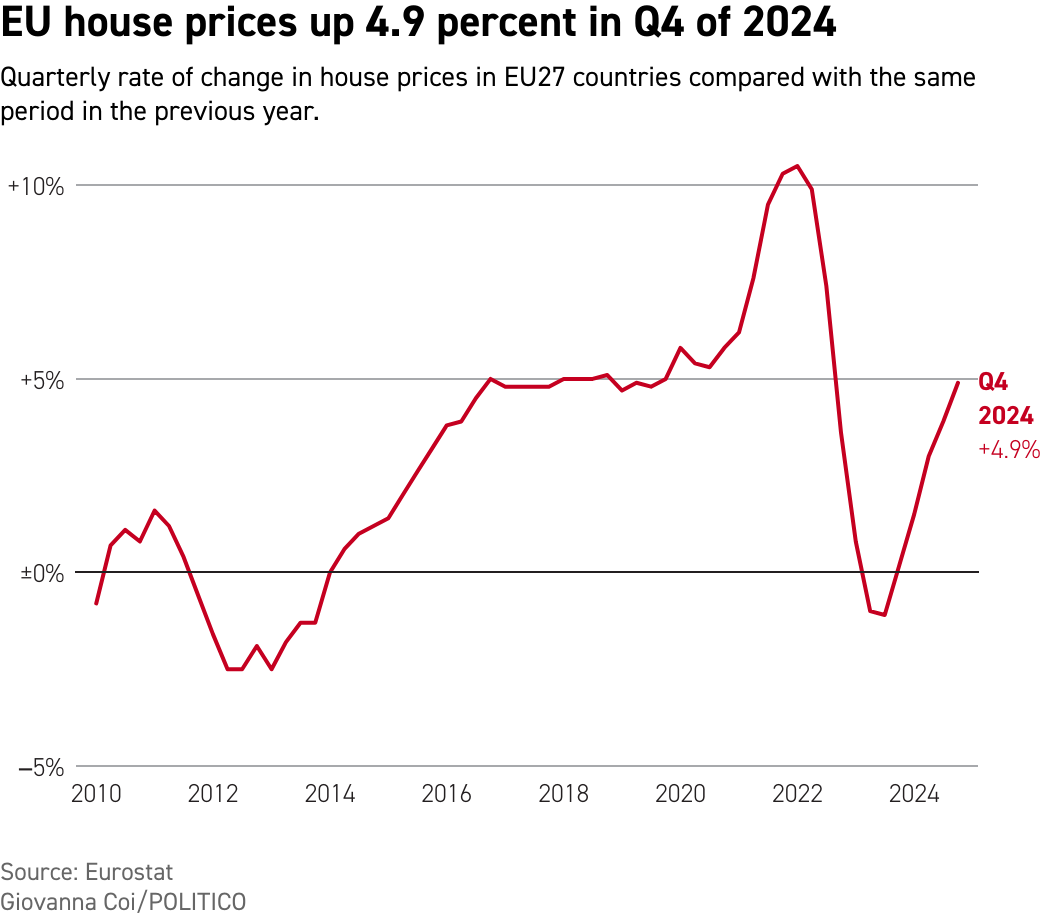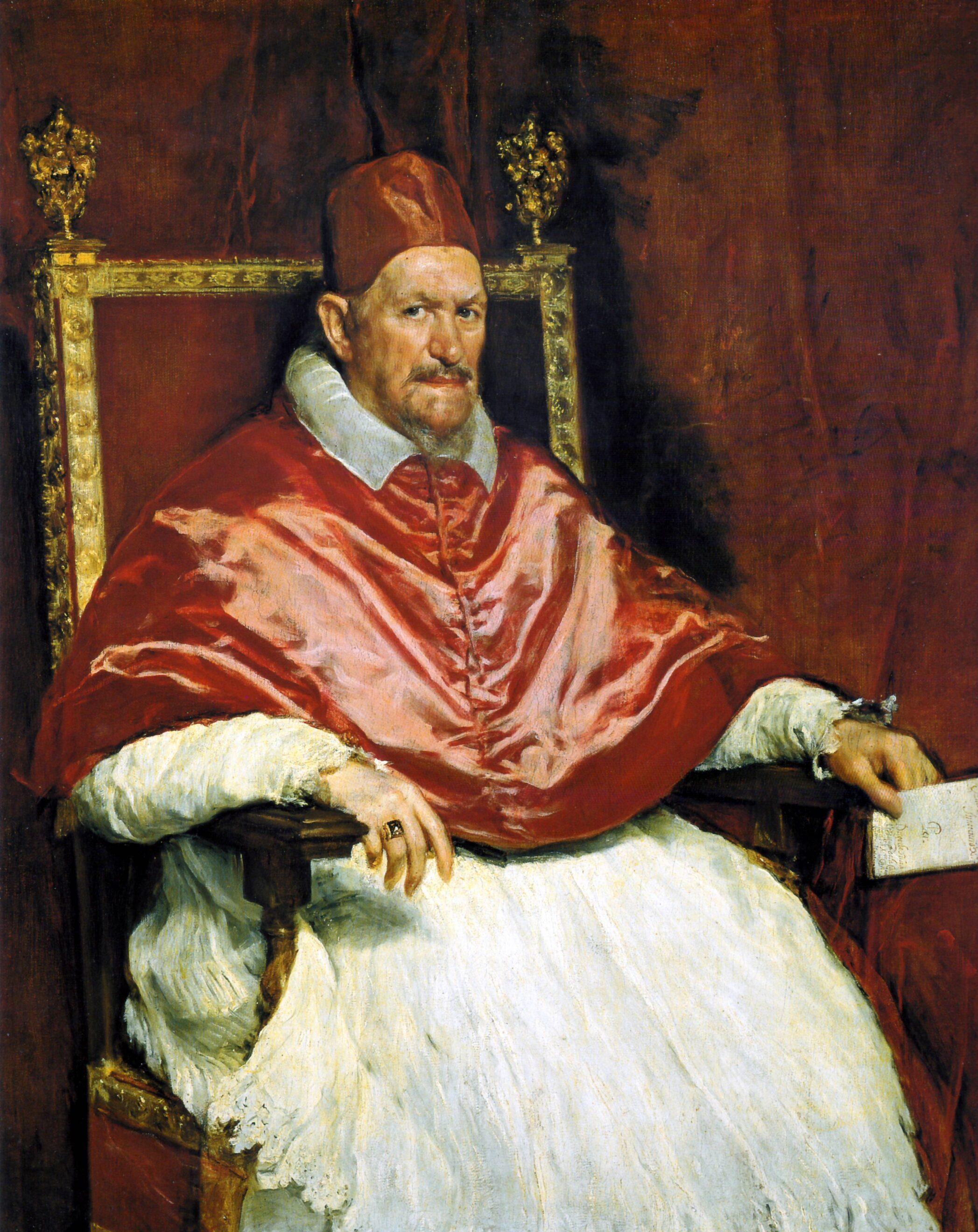Happy Thursday, city lovers!
Millions of mourners —including hundreds of heads of state — are traveling to Rome to attend Pope Francis’ funeral this Saturday. We’re taking a look at how the Eternal City is preparing to handle a global event that’s nothing short of a logistical nightmare.
Further down, we zoom in on Brussels’ open-air pool problem.
ENJOY YOUR MAYPOLES WORKERS’ RIGHTS: We’re off next week for the Labor Day holiday, but we’ll be back in your inbox on May 8.
METRO BRIEFING
URBI ET ORBI: The death of Pope Francis was met with sorrow across Europe on Monday, with flags lowered to half-mast and church bells ringing to mark the 88-year old pontiff’s passing. However, the city set to be most impacted is, of course, Rome, with untold numbers of faithful and VIPs traveling to the Eternal City to attend the funeral. Municipal, national and Vatican officials are working hard to ensure the complex logistical operation goes off without a hitch.
Cancelled commemorations: Further complicating matters is that the pope’s death coincided with the 2,778th anniversary of the Rome’s foundation. Celebratory events were set to take place all week, but Mayor Roberto Gualtieri cancelled commemorations, including a ceremony on the Altar of the Fatherland and an open-air concert on the Capitoline Hill. “Rome, Italy and the world mourn an extraordinary man, a humble and courageous pastor who knew how to speak to everyone’s heart,” he wrote on X.
|
Alessandro Di Meo/POOL/AFP via Getty Images |
All roads lead to Rome: City officials are now attempting to manage the arrival of mourners the world over. In 2005, over 4 million people had gathered for the funeral of John Paul II, the last pope to die in office. In expectation of even larger crowds this week, state-owned railway operator Ferrovie dello Stato increased the number of train services into the city and announced reduced fares for low-income travelers, as well as special assistants to help elderly passengers and those with disabilities.
Meanwhile, Italian authorities have enacted emergency measures to deal with increased traffic in and out of the capital, as hundreds of chartered buses will be arriving from Europe’s cities. Chartered flights are also being scheduled, and exactly as happened two decades ago, the elevated demand is causing ticket prices to skyrocket.
Always a housing factor: Adding to the chaos, Francis’ passing also coincided with Jubilee celebrations, which are held every 25 years. As such, a large proportion of the city’s available beds are already reserved by visiting pilgrims, and it’s unclear where the massive number of mourners will be accommodated. It also remains to be seen if city authorities will go after price gougers who charged obscene amounts for rooms — and everything else — when the last sitting pope died.
At the time, tent-camps had sprung up in parks, plazas and any other available public space, and it’s likely authorities will tolerate these improvised shelters once again. Many are also expected to sleep on the pavement right outside of Vatican City to secure spots in the long lines for St. Peter’s Basilica.
Security nightmare: With kings, presidents, prime ministers and other dignitaries from around the world expected to attend the Saturday funeral, Italian security forces and Rome’s municipal police are also tasked with ensuring their safe arrival and stay. The operation is particularly complex because while the funeral will be held in Vatican City, the pontiff will be entombed at the Basilica of Santa Maria Maggiore.
|
Pope Innocent X (1574-1655) was the last pontiff to expressly order his own entombment outside of Vatican City. | Creative Commons |
Although most popes are buried in St. Peter’s Basilica, a great many have similarly had their remains relocated to tombs in other churches: Most recent was Leo XIII, initially buried in the Vatican Grottoes in 1903, but later moved to the Basilica of St. John Lateran. Francis, however, appears to be the first pope since Innocent X — who instructed he be entombed at the Church of Sant’Agnese in Agone, adjacent to his family’s Palazzo Pamphili, in 1655 — to order his own immediate burial outside the Catholic Church’s city-state.
Four kilometers of winding central Roman streets lie between St. Peter’s Square and Santa Maria Maggiore, and securing the route will be a challenge. In preparation, a no-fly zone already in place for this year’s Jubilee has been strengthened, with a total ban on flights over the city center for the foreseeable future.
E dopo? But pressure on Rome won’t cease after the pope is entombed near the Basilica’s famed icon of the Virgin Mary — a depiction Francis greatly admired and is said to have been painted from life by Luke the Evangelist.
The papal conclave to choose his successor will begin on May 6. And while the 135 electors are sequestered within the Sistine Chapel, huge numbers of faithful will hold vigil in St. Peter’s Square, eagerly awaiting the white smoke that heralds the next pope’s election.
Rome’s authorities will be in charge of managing those crowds, as well as the masses that will continue to travel there for Jubilee celebrations. It’s all part of the job when you’re in charge of running the Eternal City…
CITY HIGHLIGHTS
PUTIN’S PEACEFUL OVERTURES: In a massive Russian missile attack on Kyiv this morning, at least nine people were killed and more than 70 injured. The onslaught came only days after Ukrainian President Volodymyr Zelenskyy said Kyiv would be prepared to negotiate directly with Moscow to end the war, if Russian President Vladimir Putin agreed to a full ceasefire. Putin responded by expressing readiness to engage — before targeting civilians in Kharkiv and other Ukrainian cities with one of the most devastating air assaults in recent months.
C’EST LA GUERRE! Fed up with the ugly tags marring walls and monuments in the heart of the City of Light, Central Paris Mayor Ariel Weil is declaring war on les tageuers and beefing up administrative coordination to ensure they’re brought to justice. “Everyone needs to work together,” he told Le Parisien. “Damaging a public building is not nothing.”
|
Laissez Marianne tranquille! | Creative Commons |
Big bills: Paris authorities say they spend around €6 million a year to wipe tags. One frequent target is the 1883 Monument à la République — often the site of demonstrations — where the near-constant sandblasting of left-behind tags is causing the stone to deteriorate. Weil said the city may be forced to place a raised garden, or perhaps even a barrier, around the sculptural ensemble to protect it in the long-term.
A WORLD BEYOND THE M25: Arts Council England CEO Darren Henley is sick of “London-centric” media coverage. Highlighting how the press’ habit of ignoring the important work happening outside the capital undermines investments in the rest of Britain, he told the Guardian: “It’s really important that we have world class opera at the Royal Ballet here in London, but I also think it’s equally as important that we have a network of grassroots live music venues in towns across this country.”
URBAN TRENDS
TIME TO DRY OFF: Brussels is famous for its foul weather, and perhaps it’s for this reason that the Belgian capital never took interest in open-air swimming pools. Amid the Covid-19 crisis in 2020, however, the Pool is Cool activist group created Flow — a temporary swimming installation intended to prove there was demand for outdoor aquatic activity in the perpetually grey city. A compelling example of urban renewal, the structure quickly became a beloved addition to the Brussels social scene.
Innovative setting: Erected in a derelict industrial lot in the Anderlecht neighborhood, Flow was built with low-cost reusable materials. Its minimalist design pleased both swimmers and designers, as it received the 2024 Ammodo Architecture Award, which recognizes socially and ecologically responsible architecture, and was nominated for the EUmies — the European Commission and Mies van der Rohe Foundation’s award for prestigious contemporary architecture.
Alas, after five years, the team that manages Flow has announced it will be shutting down at the end of May. “After five years of testing, learning, adapting and proving what outdoor swimming can mean for Brussels, we believe it’s time to bring this chapter to a close,” said Pool is Cool’s Paul Steinbrück. “It is the responsibility of public authorities to provide decent, accessible and sufficient outdoor swimming places.”
Don’t hold your breath: For its part, Belgium’s Capital Region had announced in 2022 that it would move forward with long-discussed plans of a swimming complex, including an open-air rooftop pool, at the Abattoir site in Anderlecht. But the project is frozen, and nine months after regional elections, the Brussels region still has no government. So, locals seeking to swim outdoors may have to head to Flanders for the foreseeable future.
STATS & THE CITY
 |
STREET SMARTS
We’re back with our weekly cities-related trivia challenge! Readers were stumped by our riddle about Vilnius, which is home to a monumental Easter egg.
Crafted by Romas Vilčiauskas and installed in Užupis Square in 2001, the giant egg wasn’t originally holiday-themed, rather intended to serve as a temporary celebration of the surrounding area’s urban revival. Indeed, the sculpture was supplanted by a much more grandiose Angel monument just one year later, but locals grew so fond of it, they insisted it be maintained on nearby Pylimo Street.
|
The Užupis neighborhood’s egg weighs approximately 300 kilograms. | Creative Commons |
In 2007, artist Lijana Turskytė jazzed up the sculpture by painting a traditional Easter motif on its surface, and ever since, its festive look has been refreshed every few years. Its latest design, inspired by Lithuanian herbs and wild plants, was unveiled last week to commemorate Vilnius’ designation as the 2025 European Green Capital.
This week’s challenge: Which city conserves the heart of a pope who was taken there as prisoner, and whose remains were held hostage for nearly three years? The first to identify it — preferably without using a search engine — gets a shout-out in next week’s newsletter.
LOCAL LIBRARY
— Can sustainable homes be built at affordable prices? The Foresight podcast examines how the housing crisis can be made to green the built environment.
— Brussels law enforcement is backing the controversial merger of the capital’s police zones, and accusing mayors who oppose the scheme of putting their personal interest above the common good, RTBF reports.
— María Jesús Álvarez, the legendary voice behind the Madrid Metro’s recorded announcements, interrupted her retirement to record the name of the newly inaugurated El Casar station, El Confidencial reports.
THANKS TO: Róisín O’Hara, my editor Leyla Aksu and producers Ellen Boonen and Lola Boom.
SUBSCRIBE to the POLITICO newsletter family: Brussels Playbook | London Playbook | London Playbook PM | Playbook Paris | EU Election Playbook | Berlin Playbook | Global Playbook | POLITICO Confidential | Sunday Crunch | EU Influence | London Influence | China Watcher | Berlin Bulletin | D.C. Playbook | Living Cities | D.C. Influence | All our POLITICO Pro policy morning newsletters
POLITICO’s Global Policy Lab is a collaborative journalism project seeking solutions to challenges faced by modern societies in an age of rapid change. Over the coming months we will host a conversation on how to make cities more livable and sustainable.





